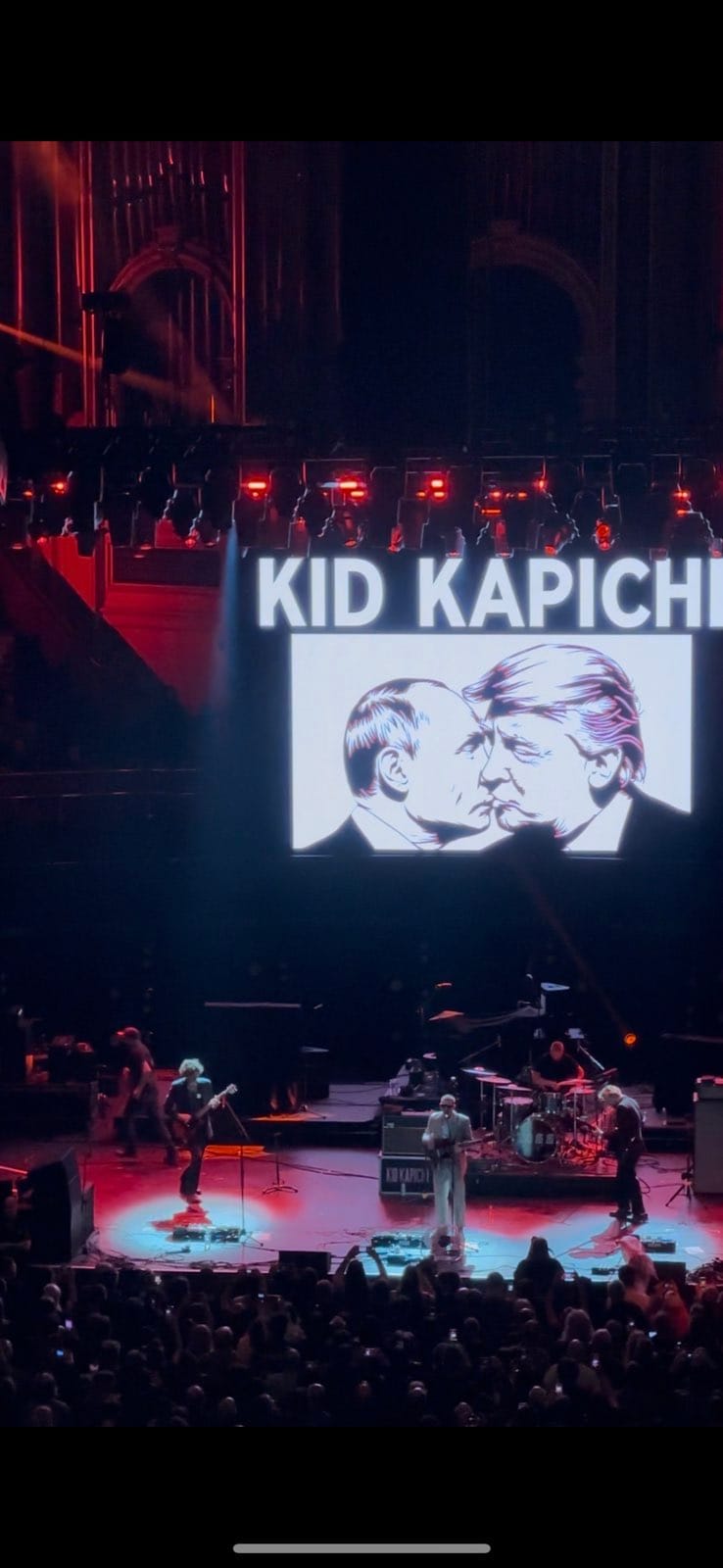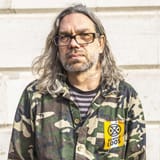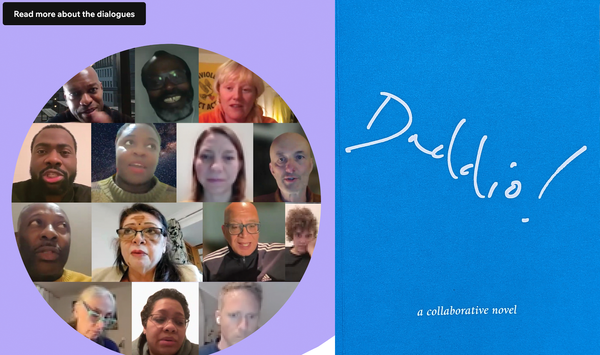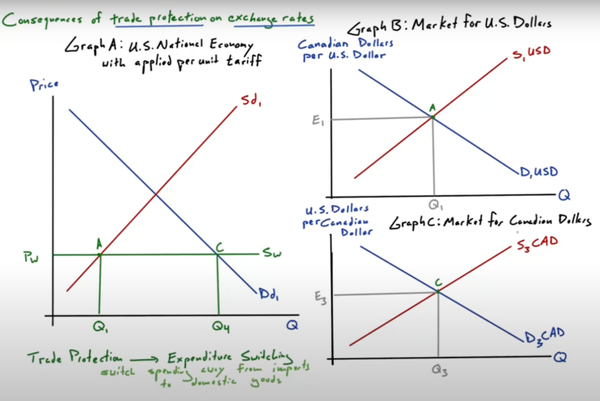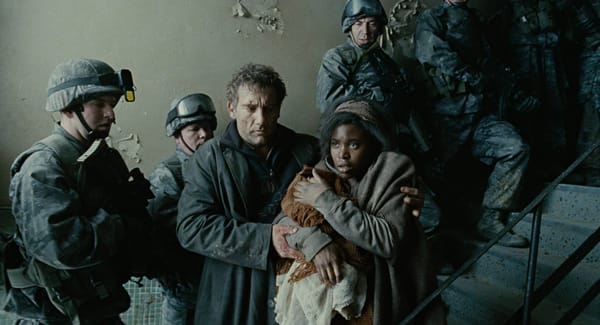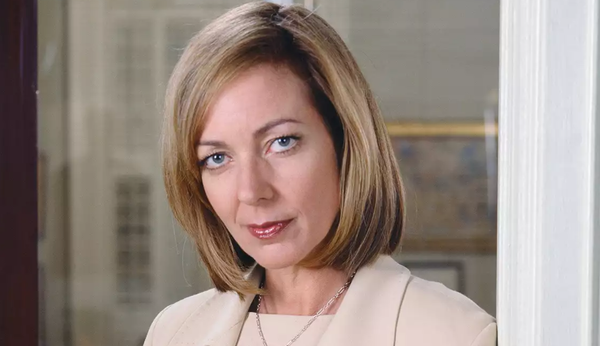The Network is The Strategy, Part Two: in Praise of Fred Hampton
It’s time to do the previously unthinkable: get over ourselves, and start actually working with each other.
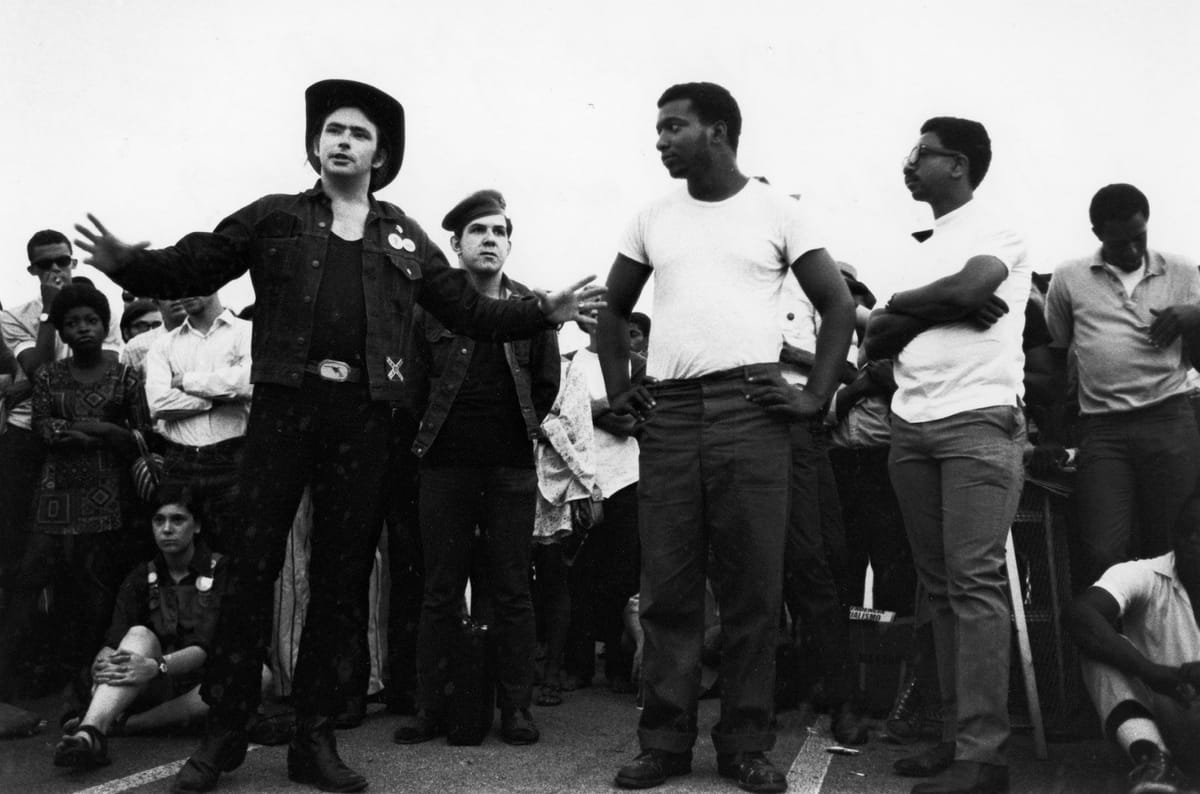
On top of the multiple, intersecting catastrophes the world is so obviously failing to deal with, there’s another, potentially more damaging crisis.
The ’Opia Crisis.
It’s an emergency of the collective imagination, and it keeps humanity in a self-medicating torpor, unable to agree on a better story for the world. And if we can’t collaboratively imagine our way out of The Multifaceted Intersecting Shitshow, what chance do we have of even beginning to have a go?

In climate world especially the ’Opia Crisis often manifests as a battle between the Utopians and the Dystopians. The former imagine worlds filled with love and harmony, or perhaps space-age green tech. The latter, the ‘doomers’: collapsed societies, beset by climate disaster, wars and famine. Each group calls each other out for the ridiculousness of their thinking, like a twenty-first century Lilliput and Blefuscu warring over which end of an egg to crack in Swift’s Gulliver’s Travels. It’s a pushme-pullmi situation designed so we collectively do little.
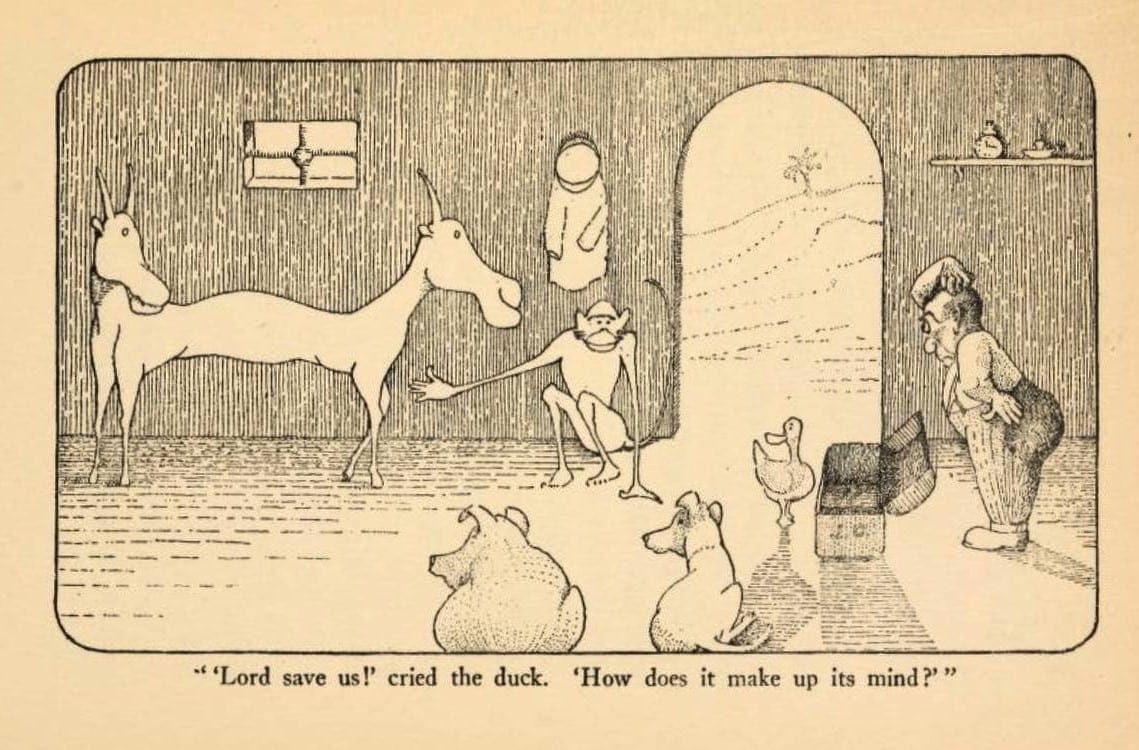
Things are shifting though. Some are exploring questions of what thriving societies look like in a hotter world. Others, like author Manda Scott or the Climate Majority Project’s Rupert Read, are advocating a Thrutopian approach, a pragmatic adaptation to collapse, inspired in part by the writing of Davids Graeber and Wengrow.
Absurd Intelligence sees much to laud in each of the above: who wouldn’t want to live the perfection of Utopia, or attempt to ward-off a looming Dystopia? And if Thrutopian thinking is what will ultimately deliver the resilience we need for the future, then bring it on.
All of which, to Absurd eyes, requires the creation of a hitherto tantalisingly out-of-reach combination of the head, heart and hands. An amalgam of the best thinking, feeling and organising; a space for a better story and better action; a vision for the future and a plan for now; and the motivating forces (love, care, freedom) to make it so.
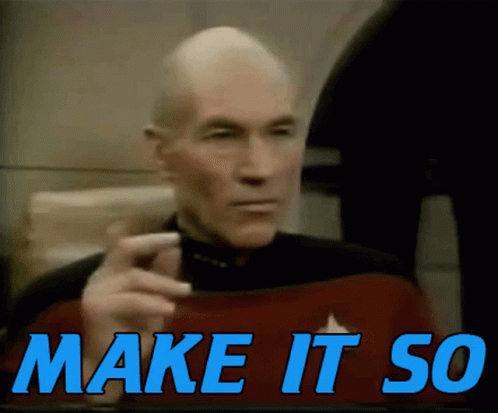
In short, an ‘other’ space, a world within a world where we might collaboratively model our approach: a Heterotopia.
Absurd Intelligence has been quietly collaborating on creating such a space for over two years. What we believe the difference is: it exists in people’s minds and in physical reality; it imagines a different future and informs what we might want to do today. Its intention is to be a broad church where people might convene: around ideas, and in real life.
The struggle with ’Opias, is that an ’Opia is a visionary category that affords… new visions. Visions are vital – otherwise how else will we know in which direction to head, or recognise our destination? But a vision, a story, an ’Opia is not a strategy, let alone a set of tactics.
A vision is hit-and-hope. It points somewhere, but can only lead us there when it has a strategy attached. So we’ve got one. And so as not to confuse people with an inspirational but abstract concept, we’ve gone for the ‘Ronseal’ approach, and come up with a plain name for something quite important: The Network is The Strategy.
The Network is The Strategy: from Isolation to Ecosystem
‘They Have the Money, We Have the People’ is one of those wonderfully infuriating state-the-bleedin-obvious isms. So true. So impossible.
And it’s the first tenet of The Network is The Strategy.
We objectively know that the world is FULL of amazing people doing amazing work. Work that could change the world in a heartbeat, if only …
… There are so many if onlys.
One of the main ‘if onlys’ in our analysis is that nobody really knows who or what else is out there. From community arts to direct action, join-the-dots thinking to systemic knowledge. Experience, access and influence are simultaneously scattered across a dizzyingly broad landscape, and hoarded as valuable assets in the competitive fight for resources. It’s a situation that makes ‘Having the People’ a far-less-than-the-sum-of-its-parts situation.
As Naomi Oreskes, historian of the politics of climate change, states so clearly, a few neoliberal corporations had all the money, and the unions and the Left Progressives had all the people in the battle to establish the dominant economic model for the 20th century. And who was it who won that battle?
So Absurd Step One is: convene across difference. Bring disparately-skilled but ultimately like-minded people together. Not everyone will be up for it, but we want to find everyone who is.

Absurd Step Two. Foster conditions for diverse collaboration around defining the world we want to see. Storytelling has been all the rage for several years, we know – and we are 100% paid-up stans for the power of the imagination – but at the risk of appropriating an almost certainly already laughably co-opted word, this is Storydoing. And all the better for having people who aren’t normally in the same room together, in the same room.
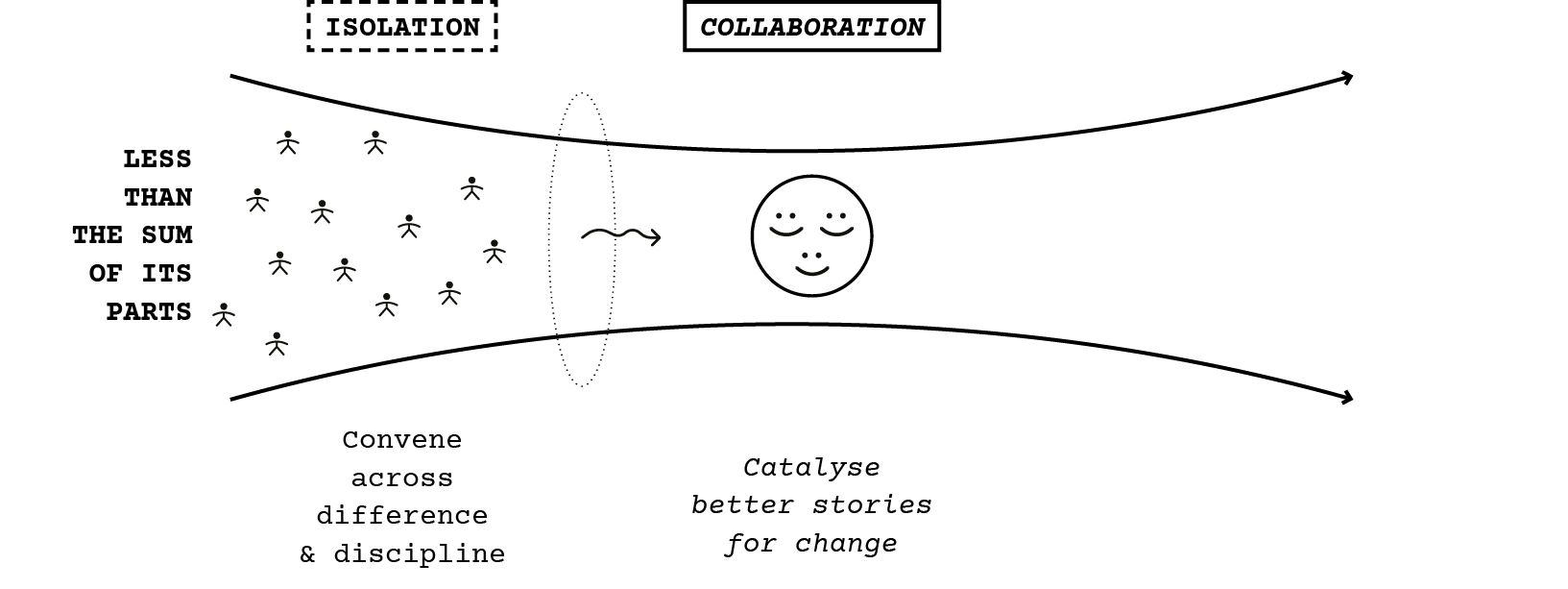
Absurd Step Three. Don’t try to control The Story. Let The Story autonomously, ecosystemically propagate itself. Let it be seen and heard in all its natural habitats so that it may be locally, topically ingested, understood and (most importantly) acted upon.
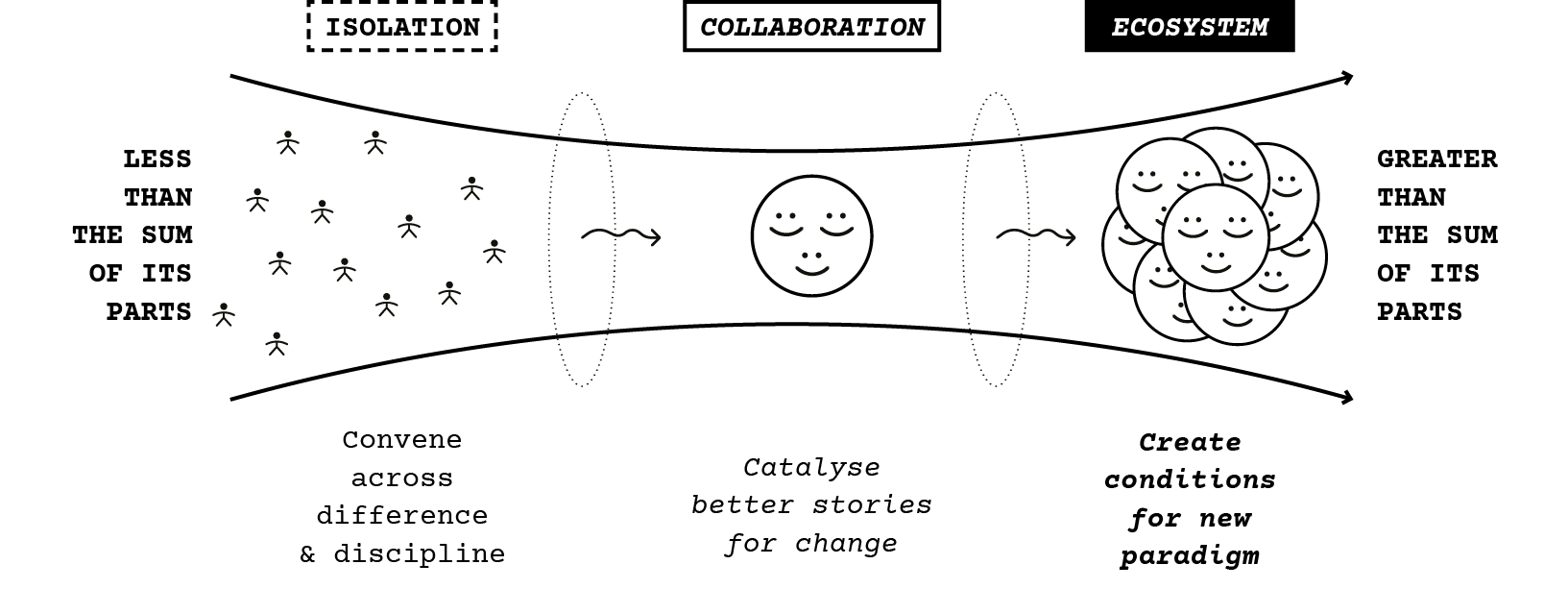
Absurd Step Four. Repeat Steps One to Three in every sphere.
Convene people across different disciplines: mix faith people and financiers, economists and educators, creatives and coders.
Convene within disciplines: mix age, gender, race, experience, job function and political stance.
Convene the crucial issues that need to be addressed concurrently if we’re to do anything about The Shitshow: energy, food, democracy, economy, spirituality and creativity. Make a trifle.

Trifles are always greater than the sum of their parts, and for those of us not schooled in The Ancient Arts, as close as we’ll get to Alchemy.

They’re also infinitely customisable. You work with the ingredients you have (they are the commons of puddings!) and they’re proof-positive that messy is something to be cherished.
By adopting such a collaborative framework we can move from a place of ISOLATION to modes of COLLABORATION and then to an ECOSYSTEM. Not the Business As Usual carry-on, nor atomised individualism.
This trifle – or framework, if you like serious words – is manifesting in myriad ways – from fortnightly Hard Art gatherings to last year’s Fête of Britain; the Humanity Project’s Assembly Dialogues to collaborations with the teams doing the hard graft in the worlds of Big Tech, climate, risk and more.
In doing so we are able to work in Kairotic time (we have written previously about how the three ancient Greek concepts of time are useful frames that guide our thinking) – where past, present and future morph from chronological measurement to transformational trajectory. By inhabiting different chronologies concurrently we can simultaneously collaborate on undoing what we don’t want, and visioning and then building what we do.
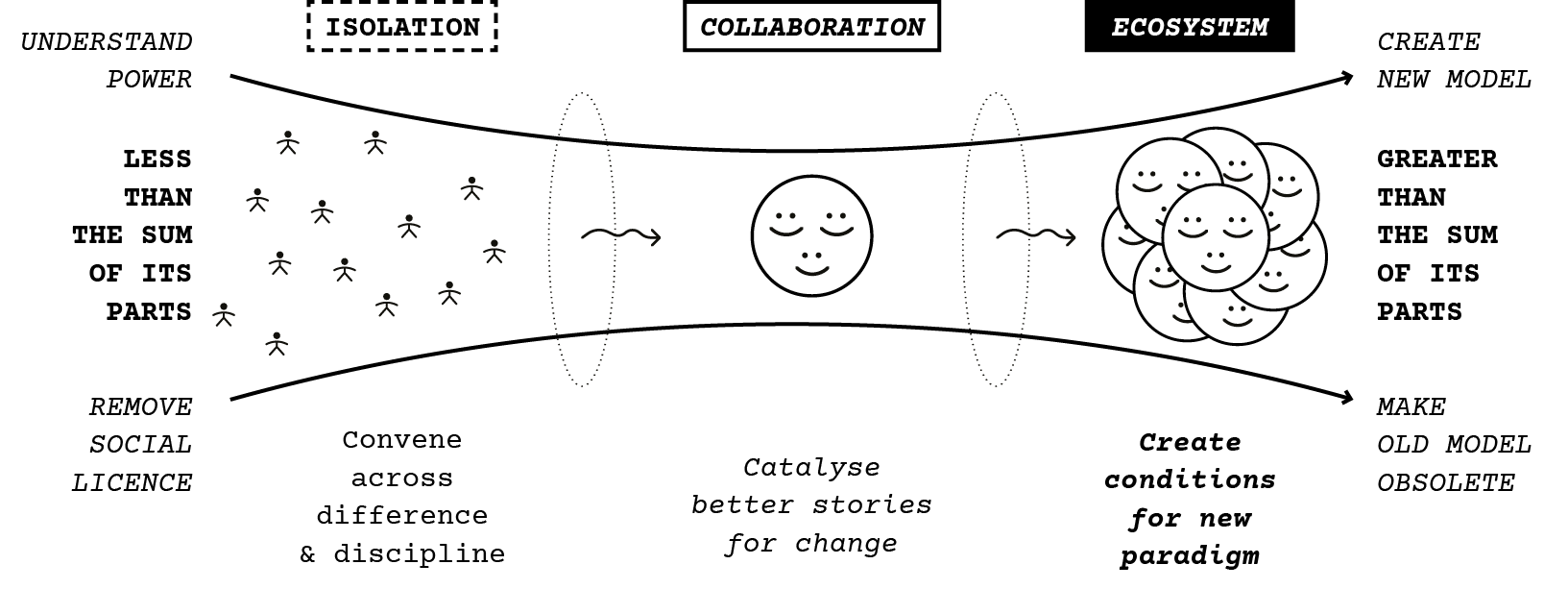
“We don’t think you fight fire with fire best; we think you fight fire with water best.” Fred Hampton
And if you are sat scoffing (no trifling pun intended) at the naïve simplicity of all this, please spare a thought for Fred Hampton of the Black Panthers. For we know how compelling convening across difference is, and how threatening it is to those who want to carry on Business as Usual.
When Fred took the message of the Panthers out on the road, to the Puerto Rican Young Lords and Hillbilly Young Patriots, the three supposedly warring Chicago factions realised their real enemy was US Business As Usual. And of course, that’s when J Edgar Hoover made his move – because the representative of Business As Usual knew that convening across difference was real power, and a real threat to the status quo.
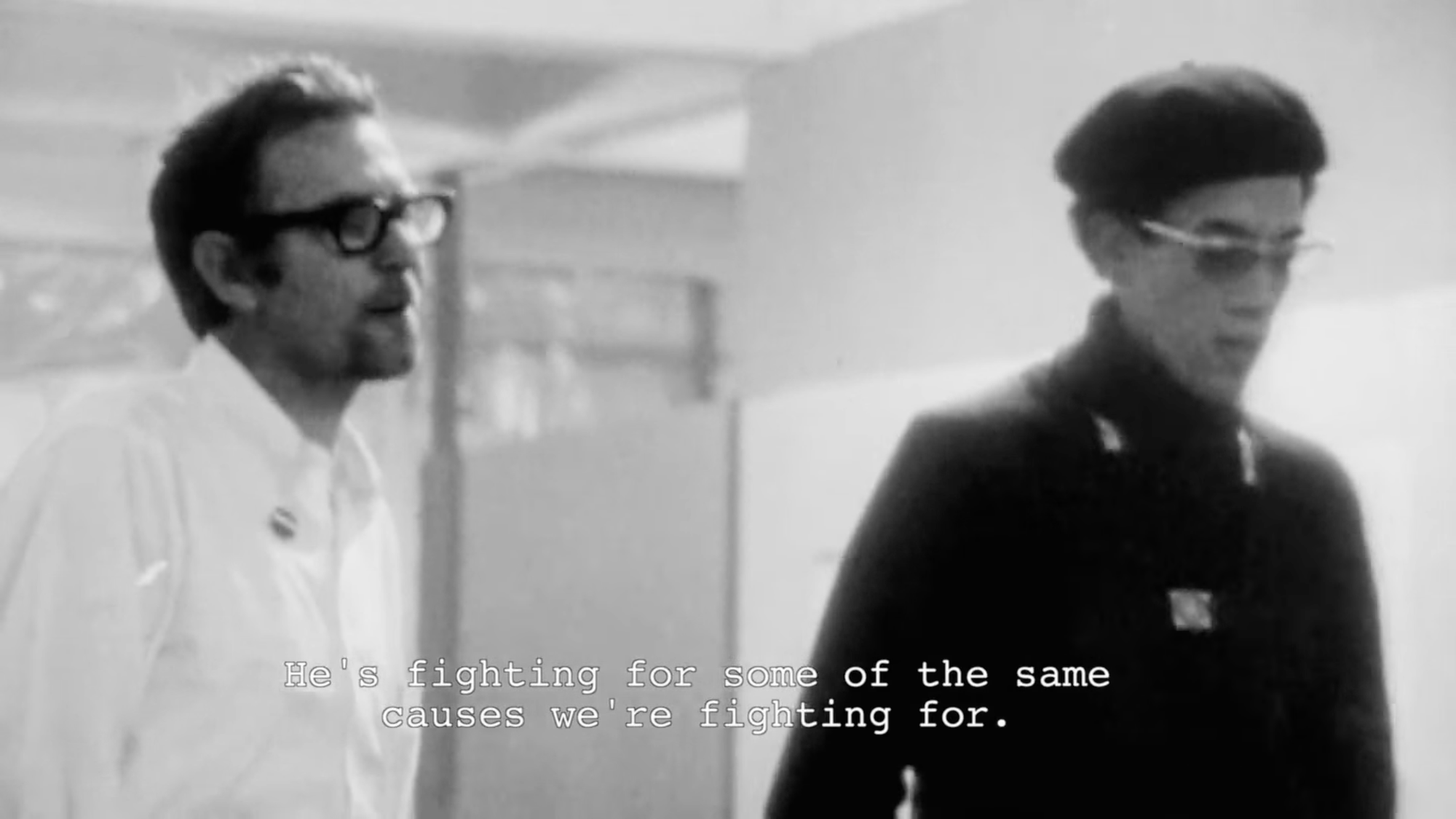
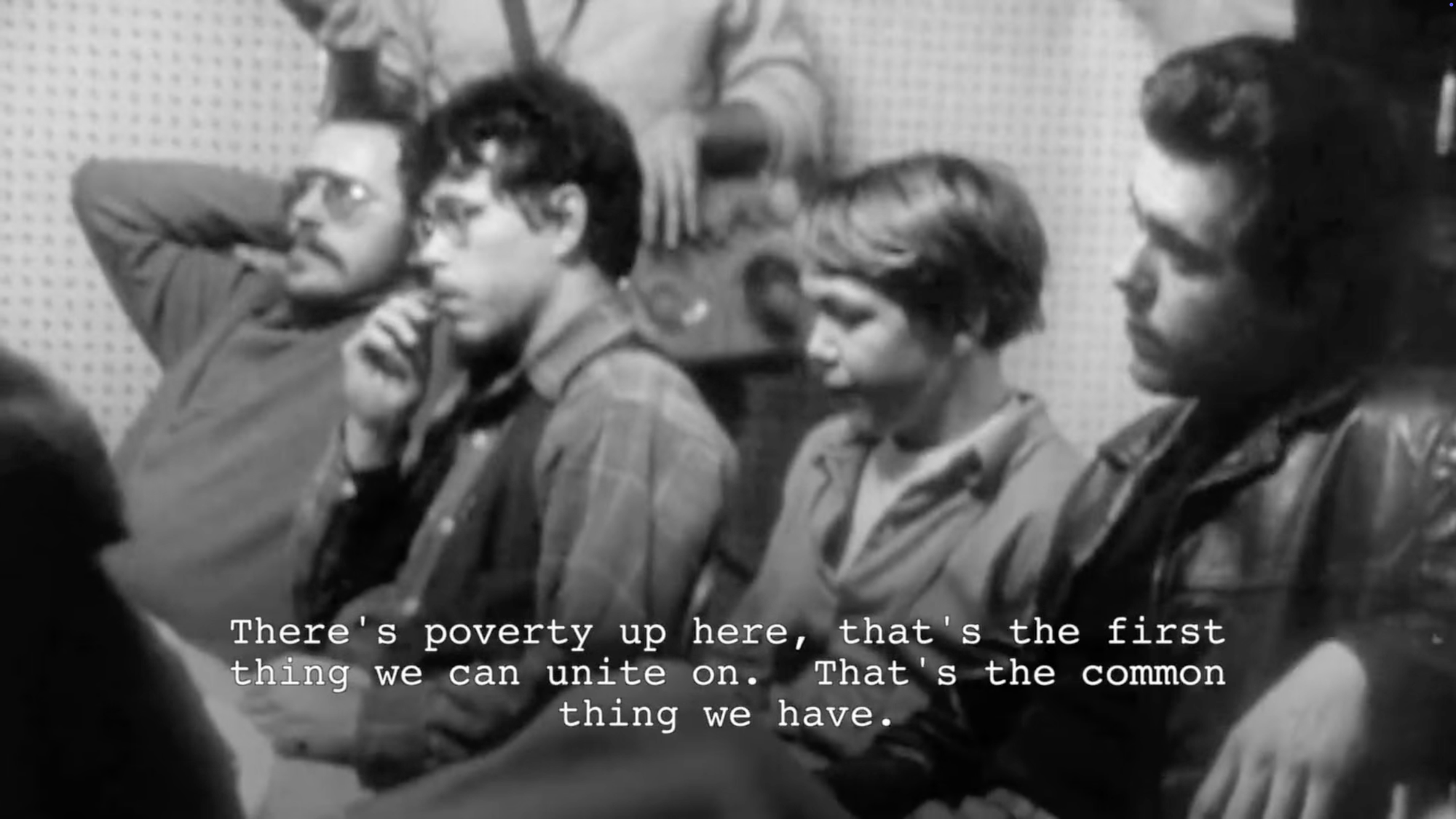
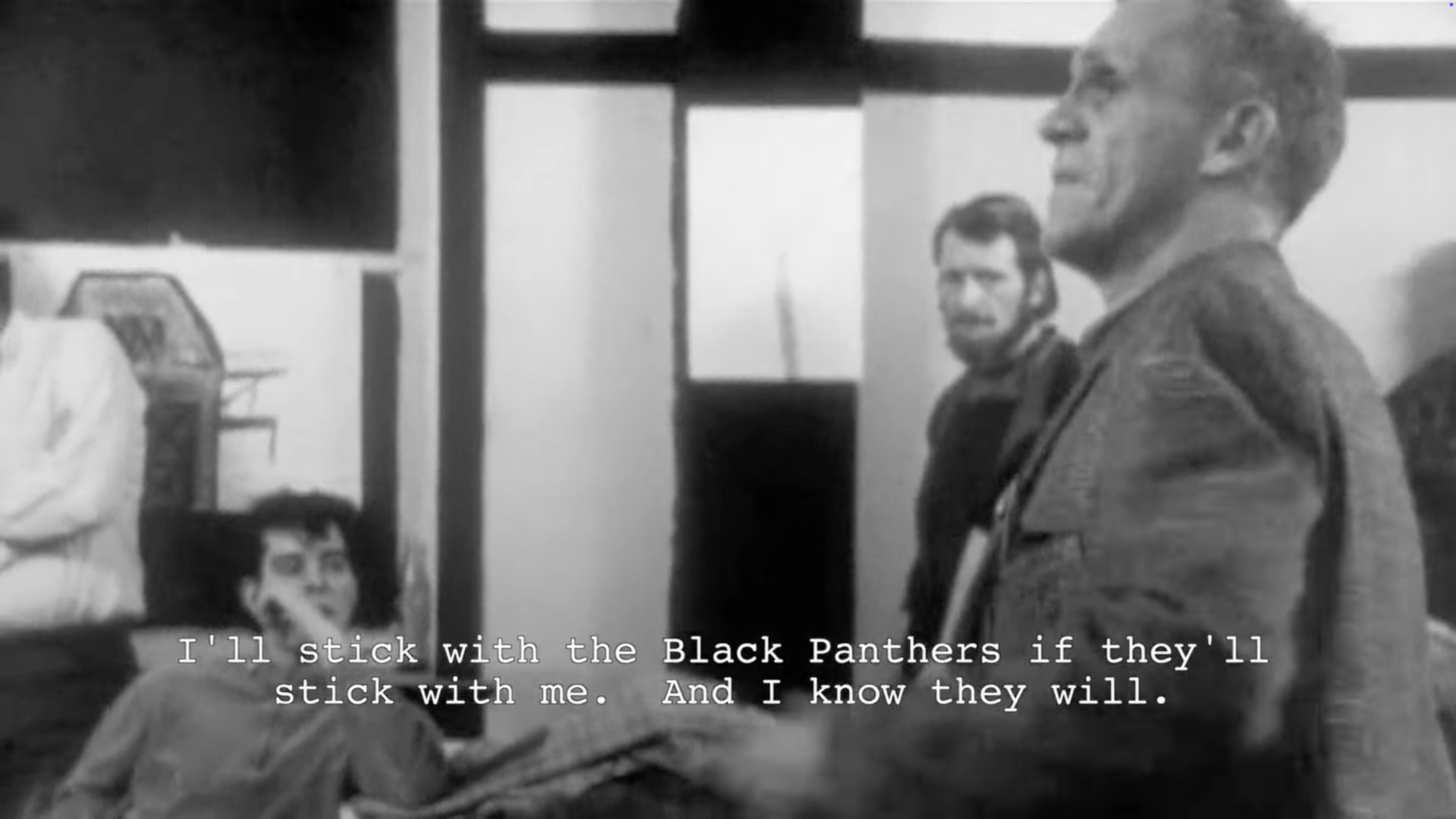
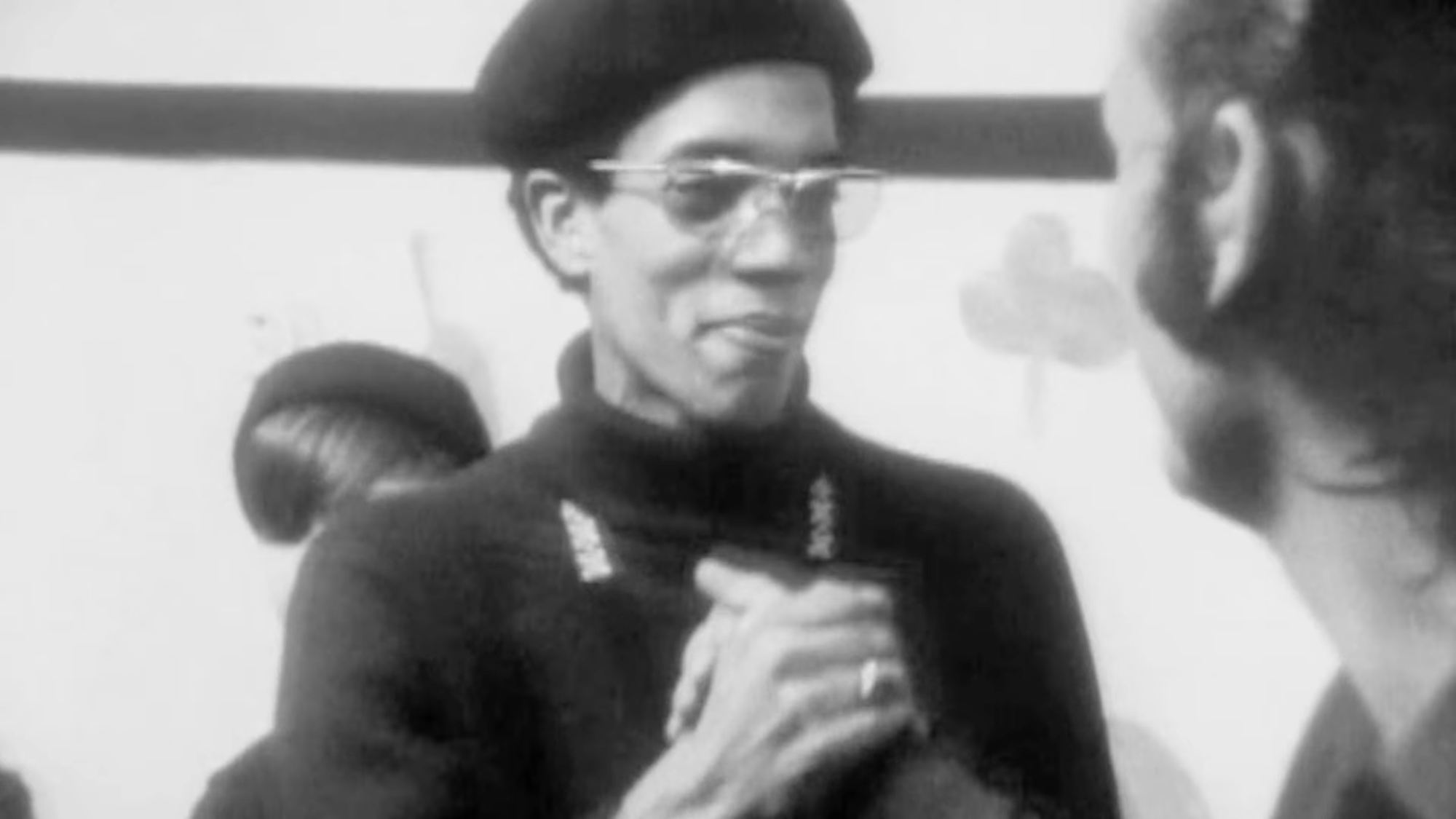
The story is spellblindly told in the 2015 PBS documentary The Black Panthers: Vanguard of the Revolution, and also the 2021 dramatisation Judas and the Black Messiah.
It wasn’t open-carrying weapons while wearing paramilitary uniform, nor organising community breakfast clubs (however revolutionary the combination) that prompted Hoover’s violence, but Americans meeting each other and realising they were united by poverty, not divided by colour.
Absurd Intelligence believes our Panthers and Hillbillies moment has come. As we’ve said in previous posts: that second, crucial stage in a revolution is not realising that everything is wrong, but realising that everyone else realises it’s wrong.
There is no more neutrality in the world
The words of Eldridge Cleaver, Fred’s Panther colleague, have never felt so pertinent.
“There is no more neutrality in the world. You either have to be part of the solution, or you’re going to be part of the problem.”
In a world that feels never/ever-more polarised such us-and-them-isms are difficult for many. The othering from ‘right’ and ‘left’; the demonising of the woke or the migrant; the unfinished business of feminism; the crisis of masculinity. Paying attention to the world is crippling in its complex nuance. It’s easy to think that ‘neutrality’ is the way to cope, or if you are the BBC, ‘balance’. See both sides.
But given floods and forest fires care not a jot for our views on Netflix shows about the manosphere, we’re with Eldridge.
Neutrality is not an option.
Doing nothing is not an option.
Keeping calm and carrying on is not an option
Business As Usual is not an option.
So it is towards the ‘solution’ that we face, however slippery a beast that might be, however uncertain or indefinable. Some egg-crackers would say pointless.
But resolutely not solution as in: ‘this will solve things’. Solution as direction of travel.
And at the risk of stating-the-bleedin’-obvious, it’s worth labouring over that Cleaver quote – for we* (echoing the German wir* with asterisk to denote a large, inclusive, everyone we) are being invited to be part of the solution-as-direction. Not be The Solution.
The Problem too is not definitive – it is a future state, determined by neutrality and a lack of willingness to take part. This is no us-and-them calling out, but an invitation to navigate, and therein lies its pertinence. It is an invite that speaks to the Kairotic moment, the opportunity for a transformational time.
It is also an invitation to devise transformational ways to navigate, to invoke the ancient Greek concept of Aion – repeatable, cyclical time. Enduring time. Seasonal. Values-driven.
The infinite growth problem
The second tenet of our Absurd The Network is The Strategy, then, is a fundamental belief that all humans are capable of giving and receiving love. Even the fuckers. It is what has informed our attempt to devise a set of guiding principles in the hope it might help us navigate a better story.
Along the way we have worked with the amazing philosopher Carmody Grey. And we constantly wish that we had had the opportunity to do more work with David Graeber.
What follows is our attempt to describe a set of values that can help us work strategically with the convening described above.
Back to the fundamental belief:
Humanity is Love.
It is this perspective that informs all we’re attempting to do. It’s not the kind of thing one might say out loud, much (except in circumstances like these when laying out a strategy), but it is something we carry at all times. Thank you Carmody for helping us get there.
Next, we know values help us make decisions. This is the Graeber bit. The last time we caught up with David he was talking about a theory he had been working on. It ran thus:
David’s view was that one can’t simply remove Production and Consumption (or Growth for that matter) and not expect people to fight back. Anyone who’s been following the Low Traffic Neighbourhood wars can see how that pans out.
So out go Production and Consumption, and in come (back)
Care and Freedom.
Again, the relationship here is crucial. If we navigate our decisions based on centering Care, we will create more Freedom for ourselves. The more Free we are, the better able we are to show Care, to ourselves and others (and repeat).
This is the Freedom To so well described by Timothy Snyder in his new book On Freedom: a transformational, sovereign freedom that is not caught in old paradigm stories that bedevil Freedom From. Again, this is key – for the relation between Care and Freedom enables a paradigm shift in that tricky, slippery concept of Growth.
For rather than miring us in the impossible to-and-fro of Degrowth (a Freedom From) we are afforded an opportunity to embrace a continuation of perpetual growth – only this time measured in Kindness and Love, rather than GDP (Production & Consumption).
The interrelating values of Care and Freedom, and Growth, then, are meant not simply as ‘moral’ positions, nor economic measures, but communicative tools – designed as much to propel as to counsel. Aionic, repeatable, spreadable, transformational.
They give us an off-ramp too from the old divides: left or right, trad or woke that set people against each other with the intention that there should be no reconciliation.
That, then, is The Network is The Strategy. Heterotopian, Hamptonian, and designed to be the widest possible invitation to a co-created process of change.
And there is so much more to do.
So.
Who wants to make trifle?
Elsewhere in Absurdity
This week where the Absurd Intelligence team have been out, about, and shouty:
- Daze attended a full-day workshop with Slow Factory, the award-winning arts for collaborative liberation movement;
- Clare caught up with Reverend Billy;
- Nuala and Alanna have been super-skilled in getting media coverage for Citizen’s Arrest Network, this piece in The Express is excellent;
- And Sophie attended a Sex Pistols gig, where support act Kid Kapichi had some pretty on-point songs about the state of Britain, the state of the media, and the state of politics:
